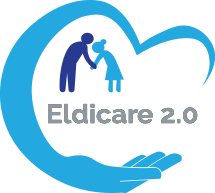Partnership
 AKMI is the largest VET provider in Greece and one of the 7 largest in Europe. It was founded back in 1989 and today is active in 8 cities across Greece (Athens, Piraeus, Thessaloniki, Crete, Larissa, Rhodes, Chalkida, Glyfada) representing almost 60% of the total VET sector in the country providing post-secondary education, of EQF levels 3-5. AKMI provides to the learners the opportunity to study one of the 107 specialties, in more than 340 laboratories in 14 different sectors. AKMI has also an extensive and demonstrated experience in managing European Funds and implementing large projects and in Curricula Design, Delivery of Trainings, Delivery of Training Material, Mobility Activities etc.
AKMI is the largest VET provider in Greece and one of the 7 largest in Europe. It was founded back in 1989 and today is active in 8 cities across Greece (Athens, Piraeus, Thessaloniki, Crete, Larissa, Rhodes, Chalkida, Glyfada) representing almost 60% of the total VET sector in the country providing post-secondary education, of EQF levels 3-5. AKMI provides to the learners the opportunity to study one of the 107 specialties, in more than 340 laboratories in 14 different sectors. AKMI has also an extensive and demonstrated experience in managing European Funds and implementing large projects and in Curricula Design, Delivery of Trainings, Delivery of Training Material, Mobility Activities etc.
AKMI SA, after more than 40 years of experience and continuous innovation, is the leading educational force in the field of Health professions, with recognition of the Ministry of Education. Innovative in all aspects of health education, the AKMI SA, leading also the European project Eldicare 1, offers innovative European courses in the most dynamically developing specialties, with possibility of parallel acquisition of International certifications, monitoring classes by renowned professionals in the field, and providing effective education, training and internships to the biggest health institutions and hospitals, a sector sensitive and demanding by offering them a stable professional choice with a secure future.
Finally, from 2020 AKMI is the only National Contact Point for the European Vocational Skills Week, an annual initiative of European Commission that aims to raise awareness of the benefits of Vocational Education and Training across Europe. AKMI has been awarded in the category “𝐕𝐄𝐓 𝐈𝐧𝐧𝐨𝐯𝐚𝐭𝐨𝐫𝐬: 𝐈𝐧𝐧𝐨𝐯𝐚𝐭𝐢𝐯𝐞 𝐕𝐄𝐓 𝐏𝐫𝐨𝐯𝐢𝐝𝐞𝐫 𝐚𝐰𝐚𝐫𝐝” by the 2022 VET Excellence Awards’ jury, organised in the framework of the 𝐄𝐮𝐫𝐨𝐩𝐞𝐚𝐧 𝐕𝐨𝐜𝐚𝐭𝐢𝐨𝐧𝐚𝐥 𝐒𝐤𝐢𝐥𝐥𝐬 𝐖𝐞𝐞𝐤 𝟐𝟎𝟐𝟐. AKMI has been distinguished as 𝐭𝐡𝐞 𝐦𝐨𝐬𝐭 𝐈𝐧𝐧𝐨𝐯𝐚𝐭𝐢𝐯𝐞 𝐄𝐮𝐫𝐨𝐩𝐞𝐚𝐧 𝐕𝐄𝐓 𝐩𝐫𝐨𝐯𝐢𝐝𝐞𝐫 that has contributed to VET excellence through innovative practices.

Aktios, a colourful and vivid organisation of long-term care and rehabilitation proposes a special model of operation, unprecedented for Greek standards. In our Units we have a total capacity of 288 beds, vwe emphasize hospitality services, nursing care and rehabilitation from falls, fractures and strokes, while we provide specialized services for Dementia and Alzheimer’s Disease.
In Aktios Elderly Care Units, we follow a Dynamic Care Model. With frequent changes in décor, depending on the time of year, lots of activities, colors, light, and music, we create hospitality spaces that are vibrant with life. We strive for each of our Units to emanate the atmosphere and energy of a kindergarten and to be a place of life and well-being rather than a conventional elderly care centre.
Aktios’ main focus is to create care spaces for seniors and people with Dementia, with a home-like environment. Spaces in which our guests feel safe and comfortable, like home, while enjoying the care of a specialized geriatric unit and a hotel-quality of life. Aktios Units are neither institutional nursing homes nor promiscuous retirement homes, but a positive attitude towards the 3rd Age. It is knowledge, expertise and the assurance of a framework for providing services to human beings and the community.
Aktios is staffed by qualified scientists and trained health professionals. The Aktios Kindergarten Approach for patients with dementia is presented at conferences and training programmes, through which its staff members are constantly gaining recognition in their field, while its Units provide a framework for training, internships, employment and visits by young scientists. We present this model of operation to experts and colleagues from various countries of the world who are interested in studying its implementation.
At Aktios, the employees, the services provided, the facilities and the surrounding area do not necessarily follow the established patterns resulting from a static and mechanical view of things. The approach to the residents and the design of their life spectrum, inside and outside the premises of our units, combine constant quality with adaptability and flexibility. Relationships and responsibilities are reviewed and redefined, depending on the situation and needs. The rehabilitative and therapeutic programme is flexible and adaptable to the personal needs and abilities of each resident, while the spaces can be changed according to their particularities or wishes. The daily diet is varied, and the seasons themselves are experienced in a different way rather than a monotonous routine of a straightforward year.
Within a structured framework that receives constant feedback from the environment, we operate flexibly. In the activities we organize, our trained partners participate either by supplementing the residents’ missing skills or by substituting them when they are completely absent. In any case, the goal for all of us is to mobilize and educate the residents so that they actively participate in all the procedures that concern them. At the same time, we pay particular attention to meeting their health needs, understanding that these needs are increased and complex. To this end, we are staffed by Specialised Staff who work in full collaboration with various Medical Specialties.
Our main concern is to maintain the home environment, a place where guests feel safe and comfortable like home, while enjoying services that ensure hotel quality of life and care of a specialized Geriatric Unit. We aim for Aktios to have the atmosphere and energy of a kindergarten, to be a place of life and well-being rather than a conventional Elderly Care Centre.
Through our recreational events, creative activities, Cognitive Empowerment Groups, Psychotherapeutic Groups, Nursing and Medical Services, the quality of our services, the renewal of the interiors, and our impeccable care and behaviour, we strive to defend the right to quality of life.
We organize Training Seminars for the Employees of our Units, we keep up to date with the advances and applications of science in the field we serve, we promote and ensure communication between us through frequent Staff Groups and ongoing training. We keep our eyes and ears open at all times to achieve the best possible outcome.
Aktios is constantly growing and evolving. Now, as a member of Blocks Group, the giant in the field of long-term care in Southeast Europe, we are starting a new era for long-term care and rehabilitation in our country.
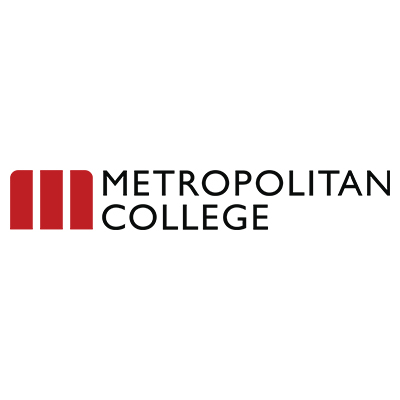
Metropolitan College is one of the first private colleges in Greece, having the widest range of study fields while being the largest UK TNE (Transnational Education) provider in Greece, offering Curricula of EQF level 6-8. All courses meet students’ demands and facilitate entry into the Greek and the international job market. The College is accredited by the British Accreditation Council as an independent institution offering higher education, and NARIC recognizes all academic degrees, while it is recognized for its educational excellence, as it cooperates with distinguished state UK Universities. Metropolitan College has campuses in 8 locations throughout Greece providing a studying and learning experience in 10 different Faculties.
Furthermore, it is the only College in Greece that is a member of the International University Network Compostela Group of Universities and also a member of the Hellenic Colleges Association, increasing its international academic recognition and networking with top universities around the world. Metropolitan College has developed a wide experience and expertise in Research and Surveys, Training Needs Analysis, Design and Development of Educational Programs and Curricula Implementation. One of the College’s assets is its strong links with the labour market through the Career Office and the annual event “DevelopingU” held by the Metropolitan College, which develops the College’s strong links with the labour market.
In parallel, MC offers a specialized training and certification program for caregivers of Alzheimer’s and Dementia patients under the guidance of the scientific team of the Metropolitan College, which adapts the educational material of the program to the particularities and the culture of Greece, in order to meet the needs of the country.
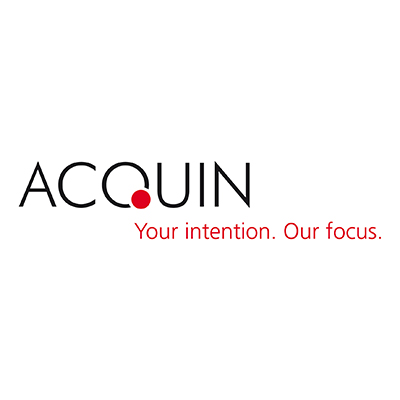 The Accreditation, Certification and Quality Assurance Institute (ACQUIN) is a registered association with recognized non-profit status. Its 160 members include higher education institutions, professional associations, and business companies. The institute operates under the license of the German Accreditation Council and is thus empowered to award its quality seal to study programmes (higher education and continuing learning) that have successfully undergone accreditation.
The Accreditation, Certification and Quality Assurance Institute (ACQUIN) is a registered association with recognized non-profit status. Its 160 members include higher education institutions, professional associations, and business companies. The institute operates under the license of the German Accreditation Council and is thus empowered to award its quality seal to study programmes (higher education and continuing learning) that have successfully undergone accreditation.
The core task of ACQUIN’s work is to promote the quality of study programmes in all disciplines to create market transparency, increase the attractiveness of HEIs/VET for foreign students, and promote the comparability of academic degrees in Germany and abroad. The institute is participating in multiple co-funded projects, including capacity building, policy reforms, strategic partnerships, and Sector Skills Alliances.
At the European level, ACQUIN is registered in the European Quality Assurance Register (EQAR), is a member of the European Association for Quality Assurance (ENQA), as well as of many other professional associations and networks: CEENQA – Central and Eastern European Network of Quality Assurance Agencies in Higher Education, EUA – European University Association, and INQAAHE – International Network of Quality Assurance Agencies in Higher Education.
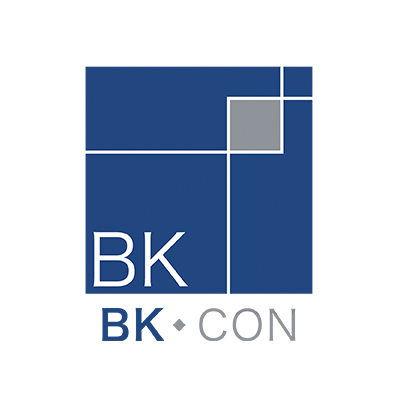 BK Consult GmbH is a niche service provider, with vast -over 20 years- experience in Project Management and service delivery.
BK Consult GmbH is a niche service provider, with vast -over 20 years- experience in Project Management and service delivery.
BKC is currently leading in total 8 Projects under Erasmus+, and is additionally participating in more than 40 ongoing Projects with a total Project value of more than 15M Euros, covering the role of the Quality Assurance and Evaluation Partner. Additionally, BKC is offering Quality Assurance Services as a sub-contractor for various projects in the field of VET, Rights Equality and Citizenship and Higher Education, ensuring that the projects are going to meet the foreseen results and objectives.
BKC has developed QA tools and processes that are currently increasing efficiency and reduce reaction times during evaluation and QA, providing:
- Early detection of possible deviations of the original Project Work Plan, in terms of timeline, quality, resources.
- A number of proposed Mitigation actions, taking into consideration the project and partnership dynamics, the actual phase of the project implementation (initiation, core project implementation period, capitalization), that are actually aiming to provide a safe pathway to meet the project objectives and achieve the envisages impact.
- Risk Management support, before and during the implementation of the project. For each of the Actions BKC is providing a coherent Action Plan in order to reduce the probability of the risk and increase the response capacity of the partners should some of the risks emerge.
- Peer review during the implementation of the main project activities covering a long list of Functions, including project management activities, deliverables drafting, overview of the design and delivery of training material, establishment and following of communication channels etc.
Additionally, BKC has a comprehensive knowledge of the EU Competence Frameworks, including the latest initiatives at an EU level, namely DigCompEdu, EntreComp and the Green Skills Framework. Due to the participation at the DG Employ Working Groups for VET and Green Skills, the experts of BKC have developed an extensive experience in the Green Transition and the overall role of VET in providing skills employees that will support the transition.
BK Consult GmbH provides a wide bouquet of services, facilitating educational providers through the design and delivery of competence-based training curricula, with the intention to provide added value at local, regional, national, and transnational level.
BK Consult GmbH masters a wide range of techniques and methodologies in Education, with solutions that are fully adaptable in the modern learning environment creating state of the art learning solutions with a smart use of resources. Within this context, following the last breakthroughs at an EU level BK Consult GmbH is considered experts in the creation and management of CoVEs.
In the field of design and delivery of on-line learning experiences, BK Consult GbR/GmbH demonstrates a significant experience, including the development of a “Digi-Path” mobile app for the creation of an experiential environment in which migrants are going to learn about the accessibility to local services.
Enhancing the Digital Competences of Trainers to support the delivery of online training for the Youth, through the participation in projects like STEP3 and DISCVET.
 The Association of Social Care Providers of the Czech Republic (APSS CR) is the largest professional organization that associates social care providers in the Czech Republic – over 1,319 organizations (2,949 registered social services). These include residential and daily care homes for the elderly, for people with disabilities and special needs, homeless shelters, services for addicted people, daily centers for children and youth, among others. Its main objective is the development and improvement of the quality of social services. APSS ČR is also the biggest Educational Institution in the country.
The Association of Social Care Providers of the Czech Republic (APSS CR) is the largest professional organization that associates social care providers in the Czech Republic – over 1,319 organizations (2,949 registered social services). These include residential and daily care homes for the elderly, for people with disabilities and special needs, homeless shelters, services for addicted people, daily centers for children and youth, among others. Its main objective is the development and improvement of the quality of social services. APSS ČR is also the biggest Educational Institution in the country.
As a prominent member of various international networks, APSS ČR is part of the European Ageing Network (EAN), European Social Network (ESN), Federation of European Social Employers, and the European Federation of National Organisations working with the Homeless (FEANTSA). APSS ČR engages in a broad spectrum of national and international projects and contracts, primarily focused on improving the quality of social services, educating employees of member organizations, fostering social dialogue, and promoting international cooperation.
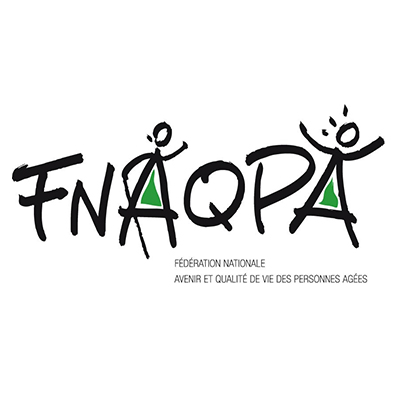 The Fédération Nationale Avenir et Qualité de Vie des Personnes Âgées (FNAQPA) is a French umbrella organization established in 1991 to represent and inform Non-Profit Providers of Nursing homes, Living Communities, Home Care, and Services. In France, FNAQPA is one of the leading organizations in elderly care, with 600 members representing more than 50,000 elders and 30,000 professionals. FNAQPA’s mission is to improve the quality of life of the elderly, contributing to National and European consultation and regulation in Ageing. FNAQPA also plays an innovative role in promoting new Quality and Sustainable standards in elderly care, providing tools and support to its members.
The Fédération Nationale Avenir et Qualité de Vie des Personnes Âgées (FNAQPA) is a French umbrella organization established in 1991 to represent and inform Non-Profit Providers of Nursing homes, Living Communities, Home Care, and Services. In France, FNAQPA is one of the leading organizations in elderly care, with 600 members representing more than 50,000 elders and 30,000 professionals. FNAQPA’s mission is to improve the quality of life of the elderly, contributing to National and European consultation and regulation in Ageing. FNAQPA also plays an innovative role in promoting new Quality and Sustainable standards in elderly care, providing tools and support to its members.
FNAQPA is also well-known in France for its role in providing a high level of professional training and education through its leading Training Center in elderly care, GERONFOR, created in 1993. Every year, GERONFOR trains in France more than 10,000 professionals through 1,000 training sessions led by a network of nearly 300 qualified trainers with solid field experience at the national level. GERONFOR training sessions comply with a National Quality Certificate, ensuring a commitment to a high level of skills.
The educational programs of GERONFOR are designed to promote innovation, professionalism, commitment, and ethics in the elderly care sector. Its aims are to:
- Strengthen the workforce
- Develop, improve, and diversify skills in ageing
- Develop human resources strategies
- Boost the professionalism of healthcare services
 The Gérontopôles were created to meet the need for expertise in the care of the elderly in France. In the broadest sense, they serve as resource and evidence centers for all players in the sector, including institutions, researchers, entrepreneurs, sector professionals, patients/citizens, and families. The primary goal is to boost research and promote the health of the elderly.
The Gérontopôles were created to meet the need for expertise in the care of the elderly in France. In the broadest sense, they serve as resource and evidence centers for all players in the sector, including institutions, researchers, entrepreneurs, sector professionals, patients/citizens, and families. The primary goal is to boost research and promote the health of the elderly.
Gérontopôle Auvergne Rhône-Alpes (AURA), based in Saint-Etienne, was founded in June 2015 with the aim of federating players and skills. It fosters local, regional, national, and international collaborations. The objective of Gérontopôle AURA is not to replace operators in the field but to organize local synergies, promote initiatives supporting aging in each catchment area, pool strengths, and encourage the emergence of federative, cross-disciplinary projects at the interface of the economic, political, scientific, and social spheres, in line with public policies and local needs. It supports the emergence and management of projects, contributing to improving the quality of life, well-being, and autonomy of seniors.
The structure has six objectives:
- Act as a focal point for all stakeholders involved in longevity and aging well.
- Accelerate innovation and solutions around the challenges of longevity.
- Act as a resource and expertise center accessible to professionals.
- Strengthen network coordination.
- Contribute to training, the promotion of initiatives, research, and the support and evaluation of projects.
Its main themes are grouped into six cross-functional strategic axes:
- Prevention and health promotion.
- Care pathways and optimization.
- Training and professions.
- Silver Economy.
- Housing, urban planning, mobility.
- Ethics and societal impact.
Fields of action range from social and medico-social services to associations, companies/start-ups, liberal healthcare professions, and public and private hospitals. Partnerships include a rich ecosystem of local structures, user and beneficiary structures, research organizations, economic development and innovation organizations, institutional structures, and players in the healthcare and medical-social sectors.
Several projects are currently in progress across the six strategic areas, addressing subjects such as fall prevention, sleep apnea prevention, vaccination promotion, epidemiology, city/hospital trajectory, virtual reality impact, innovations through the Living Lab project, driving habits for senior citizens, evaluation of innovative housing, agism, inter-generational relations, mental health training, and the Eldicare 2.0 project.
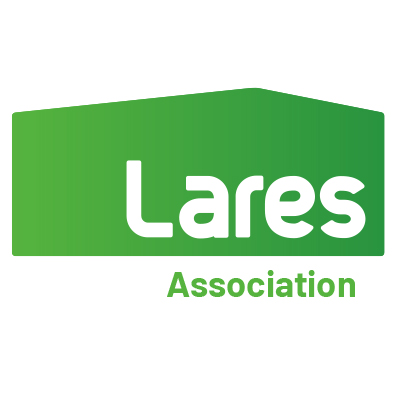 The Lares Association is an umbrella organization, founded in 2013, which groups more than 300 non-for-profit associations of nursing homes located across Spain.
The Lares Association is an umbrella organization, founded in 2013, which groups more than 300 non-for-profit associations of nursing homes located across Spain.
Lares Asociación is part of the Lares Social Group, which also comprises a Federation (1996) and a Foundation (2007).
Lares was originally established in recognition of the need to coordinate the efforts of non-profit care service providers, to promote the respect for the dignity of older persons (and later also of people with disabilities), and to uphold humanity in the provision of care and services.
For more than 25 years, Lares has pursued the defense of the rights of older people, people with disabilities, and those at risk of social exclusion, with a spirit of solidarity and social commitment.
Lares Social Group brings together more than 1,000 centers and services in Spain, taking care of 54,000 older adults every day.
Lares is the leading non-profit organization in the long-term care sector in Spain. Its main objective is to improve the quality of life of the people they care for through the personalization of direct care, the training of professionals, and the search for funding and aid.
As an employers’ association, Lares represents the interests of its members in collective bargaining processes and sectoral collective disputes.
At an international level, Lares is a member of the European Ageing Network (EAN), the Federation of European Social Employers, and the Global Ageing Network (GAN).
Lares carries out a wide range of national and international projects, aiming at improving the quality of social services, the equipment in care centers, the education of care professionals, or the social dialogue.
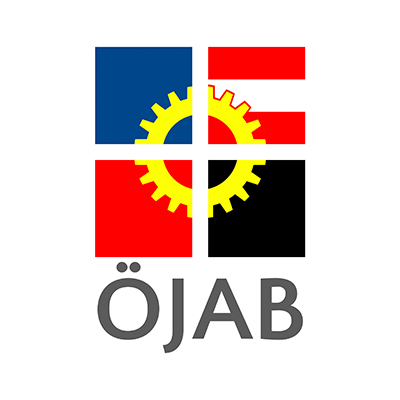 ÖJAB (Österreichische JungArbeiterBewegung/Austrian Young Workers Movement) is a non-profit organisation that provides students and other young people with a home near their places of education, offers inpatient and mobile care, and pursues projects in the fields of education, integration, refugee relief, and development cooperation.
ÖJAB (Österreichische JungArbeiterBewegung/Austrian Young Workers Movement) is a non-profit organisation that provides students and other young people with a home near their places of education, offers inpatient and mobile care, and pursues projects in the fields of education, integration, refugee relief, and development cooperation.
As one of Austria´s largest residence operators and as a youth organisation independent of any political party and without any religious affiliations, ÖJAB offers living quarters for more than 4,800 individuals at 23 dormitories for students and other young people, and four senior citizen residences as well as nursing homes for the elderly. The dormitories provide young people with opportunities to make new friends, pursue common activities, and have formative experiences. Seniors at ÖJAB facilities receive warm-hearted and professional care and also enjoy intergenerational encounters. ÖJAB’s offerings for the elderly are complemented by assisted living, home care services and a nursing school.
Additionally, each year sees ÖJAB support 1,600 young people and adults (for the most part from socially underprivileged backgrounds) in acquiring education as well as training that qualifies them for the job market. ÖJAB also participates in Europe-wide educational projects.
Asylum seekers and refugees are provided for at ÖJAB facilities and can take part in ÖJAB training programmes.
ÖJAB also pursues development cooperation projects in Burkina Faso (West Africa).
Altogether, ÖJAB’s activities extend to cover 44 locations, including 29 dormitories and residences. ÖJAB has 800 employees, of whom 560 work in the fields of caregiving and education, and its work is also strongly characterised by the numerous individuals who provide their services to the organisation on a voluntary basis.
ÖJAB thus has four main areas of activity:
- Students and Youth
- Seniors and Nursing Care
- Education and Integration
- Development Cooperation
ÖJAB offers all of the individuals whom it serves the kind of home and feeling of belonging that are necessary in order to grow, learn, and mature. The explicit goal here is to enable people to acquire the skills they need in order to master their lives regardless of their life situation or age.
 Blocks Health and Social Care is a for-profit organization established in 2020 with the focus of providing long-term care services to elderly people. The company is part of a business structure that is developing one of the largest health and social care projects in Bulgaria. Blocks Medical Campus is the largest project in rehabilitation and long-term care in the country, located in Sofia, aiming to provide an integrated community offering a full range of post-acute care services, ranging from rehabilitation, through long-term care, skilled nursing, memory care to end-of-life care.
Blocks Health and Social Care is a for-profit organization established in 2020 with the focus of providing long-term care services to elderly people. The company is part of a business structure that is developing one of the largest health and social care projects in Bulgaria. Blocks Medical Campus is the largest project in rehabilitation and long-term care in the country, located in Sofia, aiming to provide an integrated community offering a full range of post-acute care services, ranging from rehabilitation, through long-term care, skilled nursing, memory care to end-of-life care.
The campus has two main pillars:
- Elderly community consisting of several small houses, each representing a family-type establishment for the elderly.
- A world-class rehabilitation center, comprising an outpatient center and a 100-bed rehabilitation and long-term care hospital.
The mission of Blocks Health and Social Care is to improve the well-being of the elderly population in Sofia by providing:
- Quality care and support around the clock.
- A safe and secure environment.
- Plenty of social activities and opportunities for engagement.
- Access to top-notch medical care.
The nursing home, referred to as Blocks Village, follows the newly adopted legislation in Bulgaria for family-type care for elderly people. It is designed as a small house nursing home, in line with the latest evidence-based practice in operating long-term care facilities. Each house hosts up to 10 residents with the objective to re-socialize the residents and create a warm and hospitable living environment.
Blocks’ core team is a well-balanced mixture of qualified nurses and caregivers that provide services 24/7. Additionally, there are two professional teams of rehabilitators and psycho-social employees. In this respect, Blocks is capable of providing specialized care for a wide variety of residents, including independent residents, physically dependent residents, and residents with cognitive disorders.
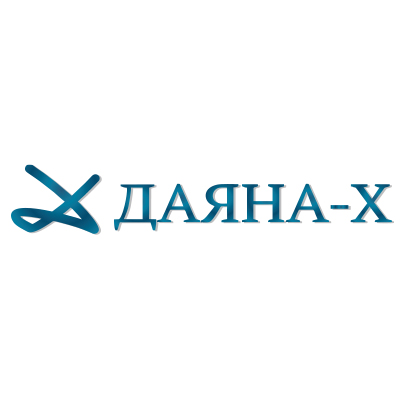 DAYANA–X Ltd. was established in 2005 as a centre for educational activities. Since the same year, the company has been a licensed VET provider registered under No. 200512283. In 2010, the company entered into an agreement with the Ministry of Labour and Social Affairs and the National Employment Agency as a provider of vocational training and key competences for unemployed and job seekers, covering several regions of the country. The company maintains contractual relationships with central state and regional institutions as well as private sector representatives to provide training on various professional qualifications and key competencies under the Law for Vocational Education and Training.
DAYANA–X Ltd. was established in 2005 as a centre for educational activities. Since the same year, the company has been a licensed VET provider registered under No. 200512283. In 2010, the company entered into an agreement with the Ministry of Labour and Social Affairs and the National Employment Agency as a provider of vocational training and key competences for unemployed and job seekers, covering several regions of the country. The company maintains contractual relationships with central state and regional institutions as well as private sector representatives to provide training on various professional qualifications and key competencies under the Law for Vocational Education and Training.
In 2014, the company established its licensed Centre for Information and Career Orientation, and in 2018, it acquired a certificate for performing mediation in employment on the entire territory of the Republic of Bulgaria. Starting from the beginning of 2020, DAYNA-X Ltd. was authorized to conduct employment mediation with employers from other EU countries.
Over the years, the company has proven itself in the market of training services with quality in the performed activities and correctness in dealings with institutions, partners, employers, and trainees. The company currently delivers training for vocational qualification covering about 90 specialities. The permanent staff consists of 9 people managing the training, and the temporary staff varies depending on the current courses, numbering 20-25 trainers. Every year, the company provides training to several hundreds of trainees depending on input from the labour offices and employers.
The VET Centre of the company provides training on all specialities regulated by the Law for VET and the respective List of professions and State Educational Standards within the area 723 Health Care. The training on those vocations is organized in a series of consecutive courses, each covering 660 training hours and numbering 2 to 4 through the year.
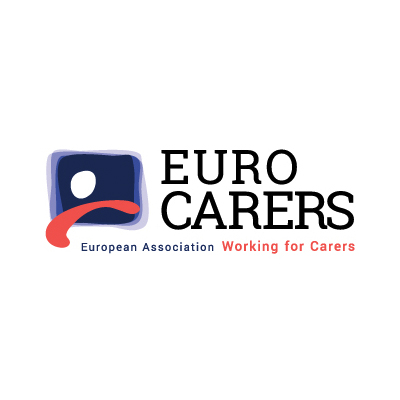 Eurocarers brings together carers’ organisations as well as relevant universities & research institutes – a unique combination that enables evidence-based advocacy. Our network works to ensure that care is valued and unpaid care is recognised as central to the sustainability of health and long-term care systems. We believe that carers’ know-how and needs are worth listening to and people should have the right to choose freely whether they want to be a carer, and to what extent they want to be involved in caring. Our aim is therefore to act as a voice for informal carers, irrespective of their age or the particular health needs of the person they are caring for by:
Eurocarers brings together carers’ organisations as well as relevant universities & research institutes – a unique combination that enables evidence-based advocacy. Our network works to ensure that care is valued and unpaid care is recognised as central to the sustainability of health and long-term care systems. We believe that carers’ know-how and needs are worth listening to and people should have the right to choose freely whether they want to be a carer, and to what extent they want to be involved in caring. Our aim is therefore to act as a voice for informal carers, irrespective of their age or the particular health needs of the person they are caring for by:
- Documenting and raising awareness about the significant contribution made by carers to health and social care systems and the economy as a whole, and of the need to safeguard this contribution;
- Ensuring that EU and national policies take account of carers, i.e. promote their social inclusion, and the development of support services, enable them to remain active in paid employment and maintain a social life.
A description of our vision is summarised in the document ‘Enabling Carers to Care‘.
Eurocarers’ Network Development Strategy 2023-2030 provides a framework for identifying and promoting the most favourable opportunities that result from our research, networking and advocacy initiatives, all geared towards nurturing carer-friendly societies in Europe.
In solidarity with the UN Universal Declaration of Human Rights and the European Pillar of Social Rights, Eurocarers recognises the shared equality of carers and those persons to whom they provide care, to achieve their individual basic human rights. Eurocarers is committed to continue working in solidarity and partnership with their representative organisations
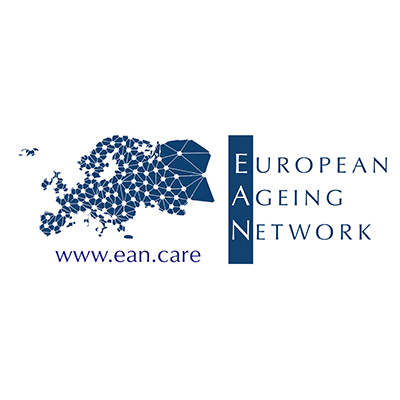 The European Ageing Network (EAN) brings together more than 10,000 care providers from 26 countries across the European continent. Its diverse membership represents all types of organizations and individuals active for older persons, encompassing for-profit, not-for-profit, and governmental organizations. The overarching vision and mission of the EAN are to improve the quality of life for older persons and support them in making each day a better day by providing high-quality housing, services, and care. EAN members collectively serve over 1 million older people in Europe.
The European Ageing Network (EAN) brings together more than 10,000 care providers from 26 countries across the European continent. Its diverse membership represents all types of organizations and individuals active for older persons, encompassing for-profit, not-for-profit, and governmental organizations. The overarching vision and mission of the EAN are to improve the quality of life for older persons and support them in making each day a better day by providing high-quality housing, services, and care. EAN members collectively serve over 1 million older people in Europe.
Longevity stands out as one of the greatest achievements of modern societies, with Europeans living longer than ever before, and this trend is expected to persist due to unprecedented medical advances and improved standards of living.
The vision of the EAN is characterized by the commitment to:
- Improve the quality of life for older persons.
- Support its members in making each day a better day for their clients through high-quality housing, services, and care.
- Establish good contacts with EU institutions, including the relevant Directorates General of the Commission, the Council, and the Parliament, as well as its Inter-group on Ageing.
- Become a key network for providers in the aging sector.
The purpose of the EAN is to promote cooperation between national associations for directors and providers of long-term care services, institutions, and organizations or individuals associated with/related to the care of the elderly, chronically ill, and disabled people. Additionally, the EAN aims to represent these entities on a European level.
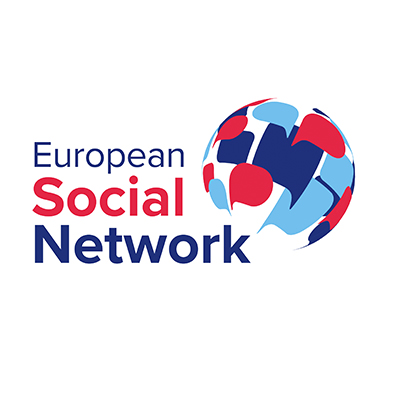 The European Social Network (ESN) is a network that unites public organizations crucial to the design and delivery of local public social services. Originally established to address the common challenges faced by managers of public social services lacking a European framework for knowledge exchange, ESN has evolved into a growing community of nearly 200 member organizations from 34 countries. It brings together more than 1 million senior social services professionals in various entities, including:
The European Social Network (ESN) is a network that unites public organizations crucial to the design and delivery of local public social services. Originally established to address the common challenges faced by managers of public social services lacking a European framework for knowledge exchange, ESN has evolved into a growing community of nearly 200 member organizations from 34 countries. It brings together more than 1 million senior social services professionals in various entities, including:
- National associations of directors of social services.
- National, regional, and local departments of social welfare and social services in ministries, regions, counties, cities, and municipalities.
- Universities, national schools, or applied research institutes working on social services improvement.
- Regulators and inspection agencies.
Mission: The mission of ESN is to advance public social services through the international exchange of knowledge.
Vision: The vision of ESN encompasses being a challenging advocate for person-centred, inclusive services; a growing network with a unique membership responsible for the public management of social services; a hub for learning and exchange on innovative and evidence-based practice; a platform to strengthen synergies between practice, policy, and research; and a well-informed and progressive voice on challenges affecting social services while promoting economic and social well-being.
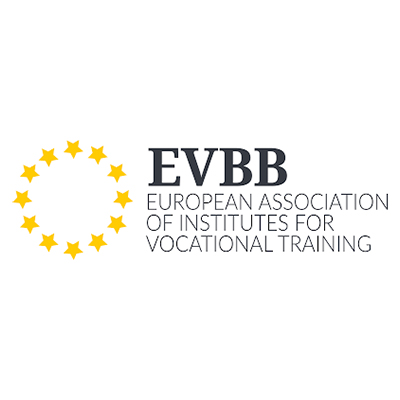 EVBB is a non-profit network of more than 300 Vocational schools, universities and private organizations striving to make education a key component of our lives. By covering all fields and levels of education and training, EVBB Members support the creation of a young, active, and employable workforce but also the continuous development of our professionals.
EVBB is a non-profit network of more than 300 Vocational schools, universities and private organizations striving to make education a key component of our lives. By covering all fields and levels of education and training, EVBB Members support the creation of a young, active, and employable workforce but also the continuous development of our professionals.
We believe that Vocational Training has the potential to become a force that can make our societies stronger and more resilient across current global trends and changes.
We have been working for over 30 years between Germany, Europe and the rest of the world following the values of an education that is inclusive, relevant and of high quality – in other words, we strive for no less than excellence. This is the path that we will continue walking in the years to come. We do so in cooperation with a strong network of motivated Members across three different continents – Europe, Africa and Asia, and we aim to go forward, engaging in fruitful discussions and cooperation with partners from all over the world. We share the same commitment – to bring Vocational Training to the future.
EVBB is a global network. We are proud to connect vocational schools, institutions and training experts from China, Kenya, Palestine, Malaysia and so forth. Our mission towards Third Countries is that of creating a global movement that makes Human Development a key priority across countries and borders – no matter where they are.
 The European Vocational Training Association (EVTA) is a leading European network in the field of Vocational Education and Training (VET), representing training providers, national public employment services, and research institutes focused on labour market policies across Europe. Established in Belgium in 1998 as an International Non-Profit Association (AISBL), EVTA is the result of the cooperation between VET providers from different EU countries in the framework of the Euroqualification project.
The European Vocational Training Association (EVTA) is a leading European network in the field of Vocational Education and Training (VET), representing training providers, national public employment services, and research institutes focused on labour market policies across Europe. Established in Belgium in 1998 as an International Non-Profit Association (AISBL), EVTA is the result of the cooperation between VET providers from different EU countries in the framework of the Euroqualification project.
Over the last decade, EVTA has evolved into an important stakeholder in the field of VET and human capital development. It actively participates in various cooperation and concertation tables, providing support to its member organizations and ensuring that their needs and expectations are successfully fulfilled. EVTA is committed to promoting high-quality and inclusive education, uniting various VET institutions in a common pursuit of excellence. The association actively engages in activities aimed at amplifying the influence of its members in EU policy-making, ensuring that the voice of VET providers is heard at the highest levels.
EVTA also plays an active role in the development of EU-funded projects, undertaking initiatives that address significant challenges related to the green transition, digitalization, and social inclusion, as well as the promotion of democratic values through education and training.

